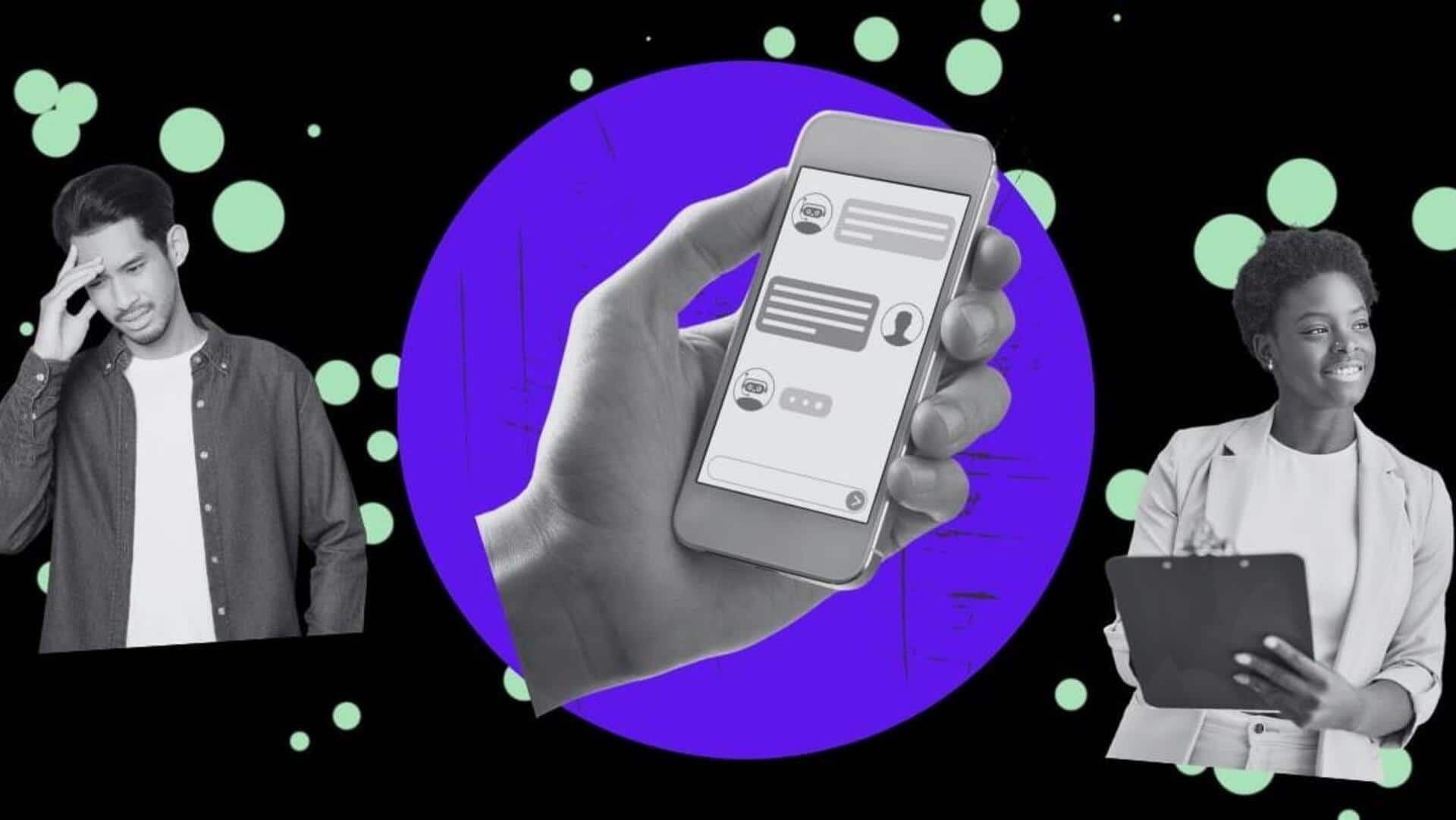
'AI therapist' offers virtual support to those avoiding human help
What's the story
US start-up named Sonia has introduced an "AI therapist," an alternative to traditional therapy. The company, founded by Dustin Klebe, Lukas Wolf, and Chris Aeberli, uses artificial intelligence to analyze user inputs during in-app therapy sessions. Users can talk to or text the AI therapist about a range of topics. The chatbot is available on iOS at the moment.
Functionality
It addresses a range of issues
Despite lacking FDA approval, Sonia can tackle problems from depression and anxiety to relationship issues and poor sleep, as per co-founder Klebe. The app has "additional algorithms and models" to identify "emergency situations" like violence or suicide contemplation, directing users to national hotlines. While the founders lack psychology backgrounds, they consult with psychologists and have recently hired a cognitive psychology graduate. The start-up is also actively recruiting a full-time clinical psychologist.
Operations
How does the AI tool work?
Sonia utilizes multiple generative AI models to analyze user dialog during app therapy sessions and provide tailored responses. Drawing on cognitive behavioral therapy techniques, the app offers personalized "homework" to reinforce insights gained from conversations. It also includes visualizations to help users identify key stressors. The service is available for a subscription fee of $20 per month or $200 per year.
Funding
Sonia has secured $3.35 million in funding
Sonia, which boasts around 8,000 users, has secured $3.35 million in funding from investors like Y Combinator, Moonfire, Rebel Fund, and SBXi. The start-up is currently negotiating with undisclosed mental health organizations to offer Sonia as a resource through their online platforms. Initial reviews of Sonia on the App Store have been positive, with many users expressing that they find it more comfortable to discuss their issues with the chatbot than with a human therapist.
Expansion
What about the privacy?
Addressing privacy concerns, Klebe assures that Sonia only stores the "absolute minimum" personal information necessary for therapy: a user's age and name. However, details about storage of conversation data remain undisclosed. Klebe also emphasizes that they do not view human therapists as competition, but rather aim to bridge the gap between demand and supply in mental health care.
Controversy
The debate surrounding AI chatbots in therapy
The effectiveness of chatbots in therapy remains disputed. Some studies suggest they can alleviate symptoms related to depression and anxiety. Critics, however, argue that chatbots may overlook subtle signs of a problem and their responses could be influenced by biases in their training data. Despite these concerns, Klebe is optimistic about Sonia's potential to help those struggling with mental health who cannot or do not wish to access a human therapist.